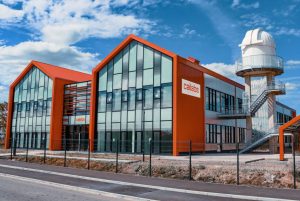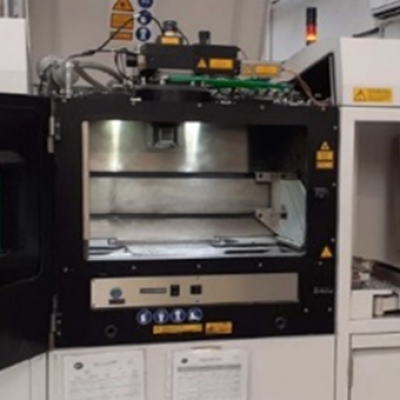
LZH increases glass dicing speed with Bessel beam, using CANUNDA-AXICON
Laser Zentrum Hannover eV., Germany

Glass cutting …

> UTG Schott D263 glass
> 1030nm
> 50µm thickness
> <10µm transition zone
> 50mm² glass processed without translation stage
> 1 scan drilling
… with Bessel beam

in the processing plane:
> 400:1 aspect ratio
> 0.51 µm FWHM
> No oscillations over the propagation
Process Speed x5
The partner
Laser Zentrum Hannover eV. (LZH) is a German research institute pioneering in laser technologies. LZH’s focus of research includes the use of high-energy ultrashort pulse (USP) lasers for innovative glass processing and high-power continuous-wave (CW) lasers.
The application
Ultrashort pulse lasers, typically femtosecond lasers, are a key vector of innovation for glass dicing processes. Research in this area is driven by the development of touchscreen and semiconductor markets, as well as next-generation products such as foldable smartphones and curved screens.
The problem
In order to maximize the speed, precision and efficiency of glass dicing processes, LZH needed a beam shaper technology able to produce high quality Bessel beams while handling high-energy femtosecond pulses with enough stability to be used with a galvanometer scanner.
The CANUNDA-AXICON solution
The solution developed by Cailabs is CANUNDA-AXICON, a reflective, off-axis axicon. Reflective axicons will produce Bessel beams based on similar principle as refractive axicons, using inference, but in a reflective way with an off- axis illumination.
The reflective design of this one-of-a-kind axicon is what sets it apart from conventional axicons. It can withstand higher energy pulses and higher average powers from the input laser, making it suitable for demanding material processing use.
It can also be used to avoid many undesirable phenomena such as chromatic dispersion, chromatic aberrations and focus shifts, making it a perfect, stable and robust solution to produce Bessel beams with Ultra-Short Pulse lasers for industrial glass processing.
This remarkable stability allows CANUNDA-AXICON to be compatible with standard industry scanners.
Moreover, using the manufacturing precision that they developed, Cailabs can achieve a higher quality Bessel beam than conventional refractive axicons, with a consistent and uniform intensity distribution, for consistent material ablation.




